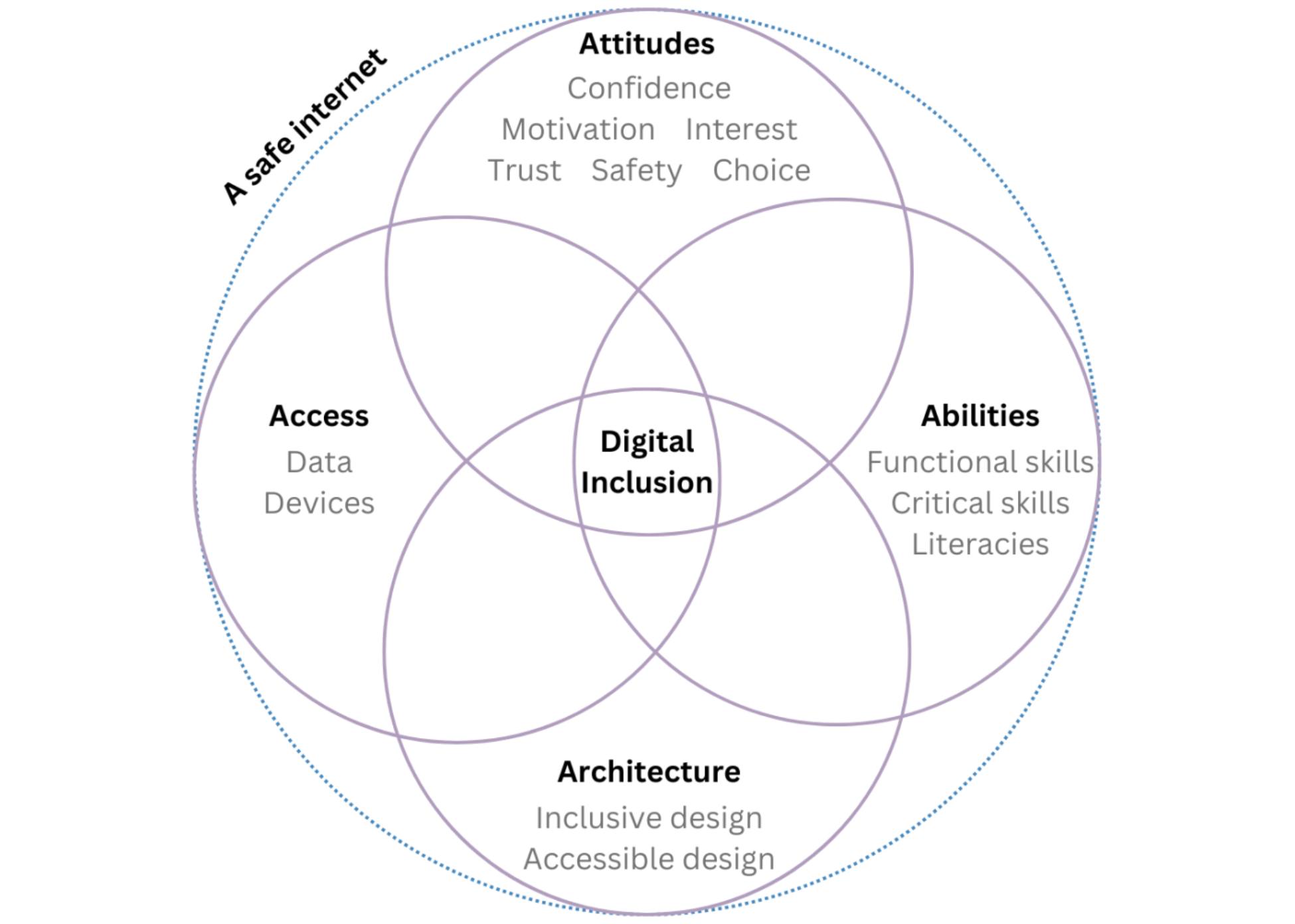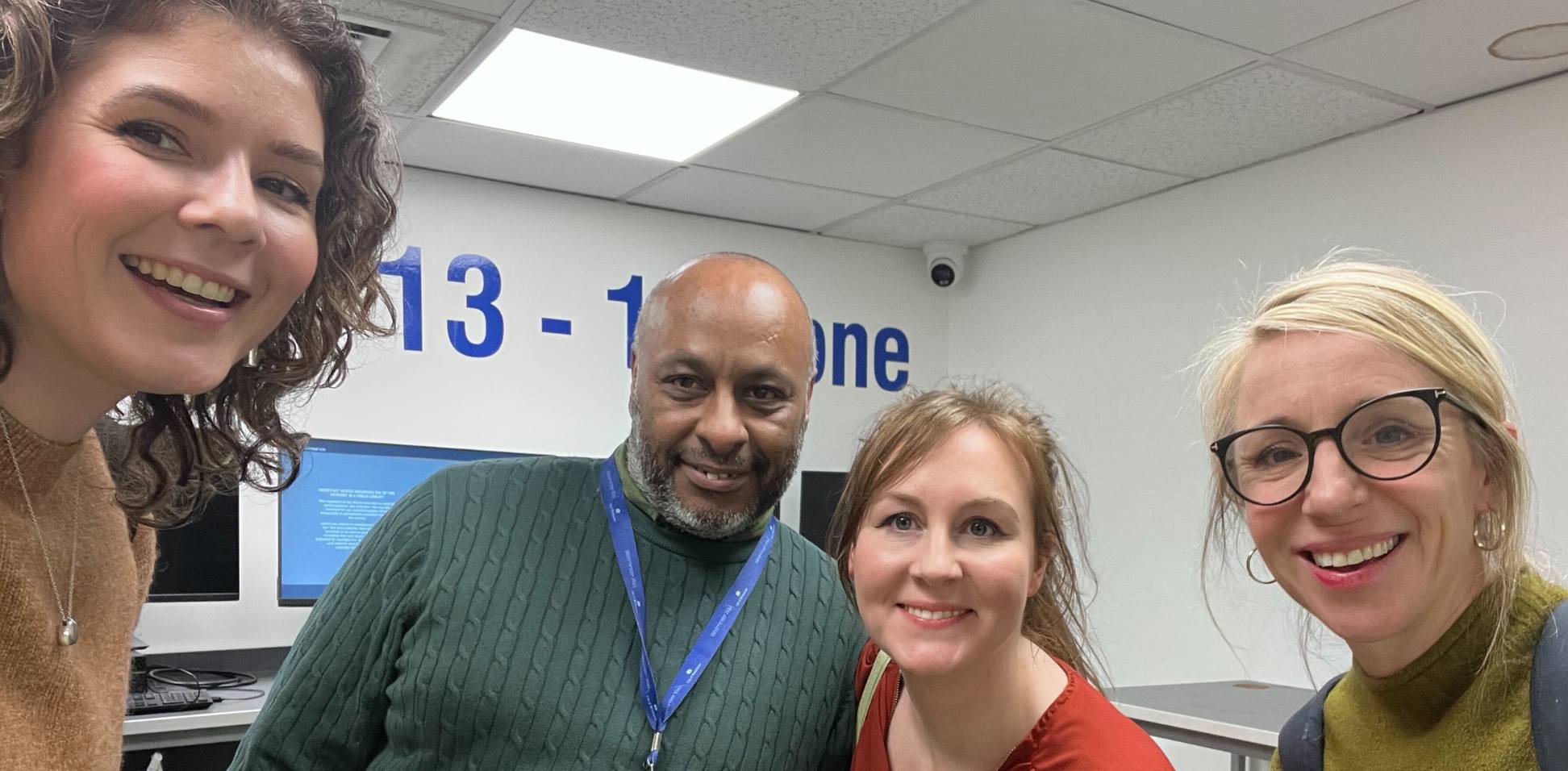The new digital divide: Digital confidence in the age of AI
Our Advocacy Lead Hannah gives insight into our polling, what is eroding our digital confidence in the age of AI, and what we can do to bolster it.
Navigating digital in the AI age
Digital confidence has never been as fundamental; we need a sense of self as we navigate digitised GP services, transfer money via an app, and connect with loved ones from across a screen. Someone's belief in themself, their sense of value as a person and overall self-worth, as well as their ability to bounce back from setbacks, is an imperative to them getting and staying online - especially in the age of AI.
Digital confidence is a previously overshadowed aspect of digital exclusion. Research, policy, and practice in the UK - notably since the Covid-19 pandemic - focused on digital access and skills when addressing the digital divide. Inclusive, accessible design was also emerging. This was all critical. Positively, there was an uplift in internet access during the first year of Covid-19 in the UK.
However, this left confidence and a person’s digital ‘attitude’ somewhat overlooked.
As I have said before, confidence is a component of a person’s attitude towards the internet and digital technologies. Their attitude is important for their digital inclusion and engagement; enabling their modern life and work.

Show image description Hide image description
Diagram of four overlapping circles, one outlining the attributes of digital access (data, devices), one outlining the attributes of digital architecture (inclusive and accessible design), one outlining the attributes of digital abilities (functional and critical skills, and literacies), and another outlining the attributes of digital attitudes (including confidence, motivation, interest, trust, safety, and choice). These four circles are outlined by a dotted ring - symbolising a safe internet. Digital inclusion sits in the middle of these circles and ring.
Confidence contributes to a person’s attitude, a key aspect of their digital inclusion and engagement.
Digital confidence among people who are disconnected
With artificial intelligence and other emerging technology on the rise, Good Things Foundation polled the British public about their digital confidence - and for those with limited or no broadband connection, 49% said the rise of AI has made them less confident to go online. This is higher than the UK average of 37%.
Just shy of 50% of people in Yorkshire and the Humber and in the North East say that AI is not very trustworthy in keeping personal data safe. And 73% of women (vs. 64% of men) worry that AI makes it hard to know what is real online.
Although their degrees of concern, trust, and confidence will vary, it is evident that the public’s digital engagement will increasingly erode if we don’t make an AI-enabled internet secure and safe - for everyone.
Our polling also revealed...
- The volume of people that strongly agree that they feel like they run into online scams all the time online is generally consistent across social grades
- Over the past year, men avoided doing online activities such as shopping, applying for work, and using the NHS due to a lack of digital confidence more than women
- Only 2% of those aged 65+ are very confident in recognising an AI news article
- Those aged 25-34 say that support or training to use the internet and new tech like AI would help them a lot (44%), more than any other age group
- Our research reveals 38% of UK adults feel less confident going online since the rise of artificial intelligence (AI) tools.
Building online safety and AI skills
Online fraud and scams are continuing to be an area of serious threat. Our work meant that in the aftermath of losing a family member to cancer, someone like Linda, who was almost scammed, was able to improve her digital skills and confidence. Through the in-person support she received from her local digital inclusion hub, Linda gained an awareness of scamming and the capability to understand how to stay safe online.
Earlier in the year, Good Things Foundation launched digital media literacy topics on Learn My Way supported by Ofcom. These modules have supported over 2,500 unique learners to gain skills for free, in areas such as improving their digital wellbeing, learning how websites manage user behaviour, and understanding online tracking. What’s more, our new, free AI Gateway supports people like Linda to get the AI basics - building practical skills, knowledge, and trust to help her and others stay safe, confident, and connected online.
We know that a future where everyone can confidently engage online will not happen by accident. It requires recognition that digital confidence is as fundamental as access, skills, and design - and to create and sustain support that strengths all four of these aspects of digital inclusion and engagement.
As AI and other emerging technologies accelerate, Good Things’ believe there is an opportunity to ensure no one is left behind - the trusted faces in local places that make up our Network, providing freely available, high-quality learning resources, is just the start.
At Good Things, we continue working with our strategic partners, digital inclusion hubs, and policymakers from across the UK to make sure that the internet and digital technologies - and the AI-enabled world that is rapidly emerging - works for everyone. If we get this right, we can together build a digital world whereby everyone can participate - now and in the future.


